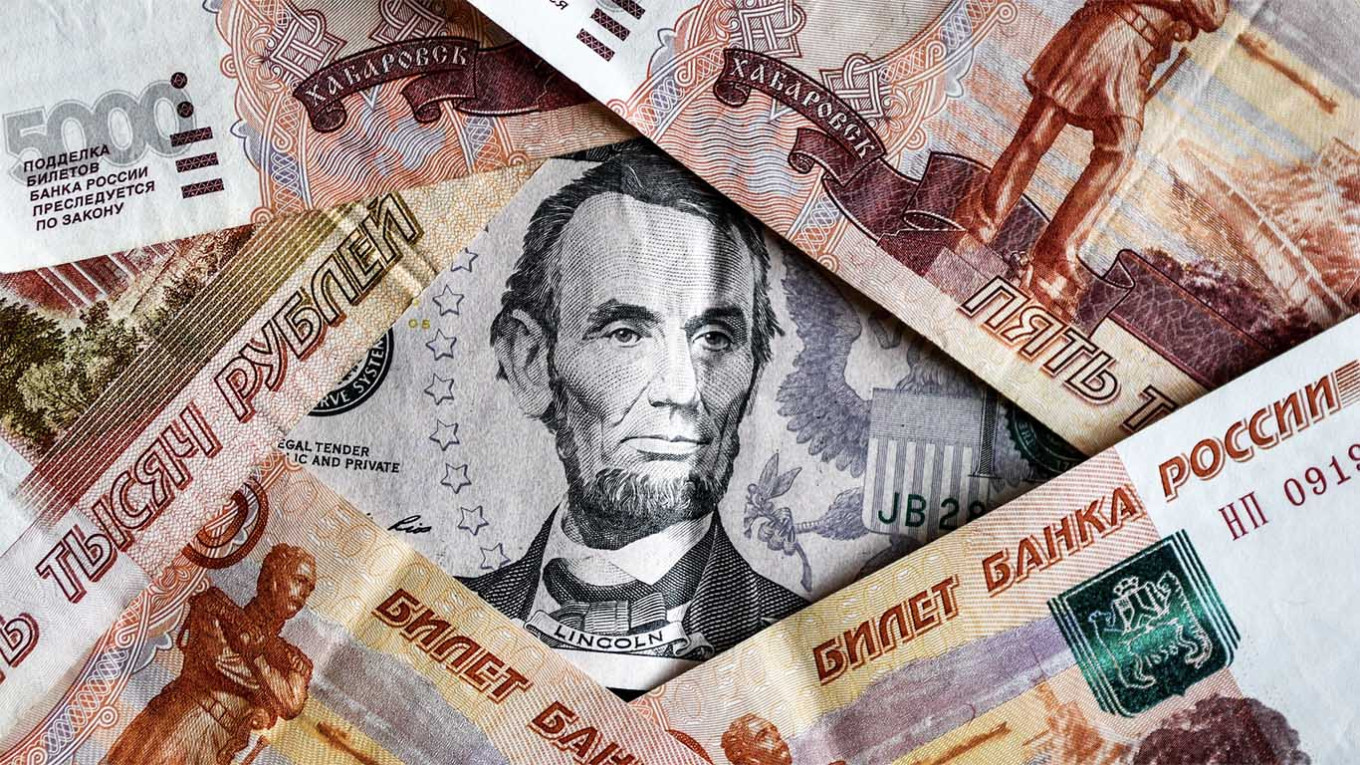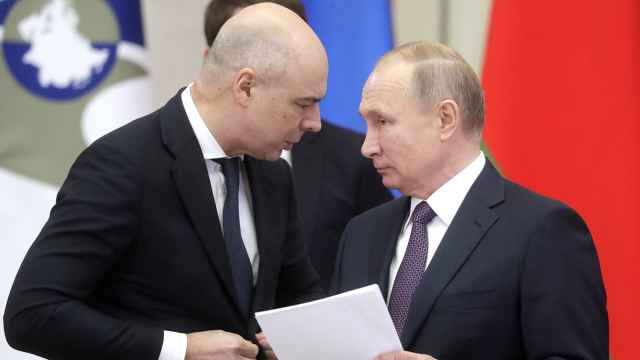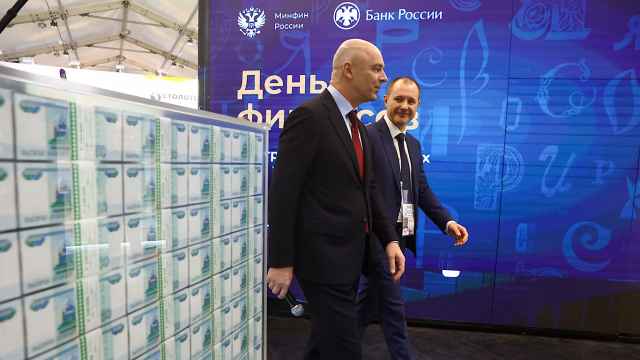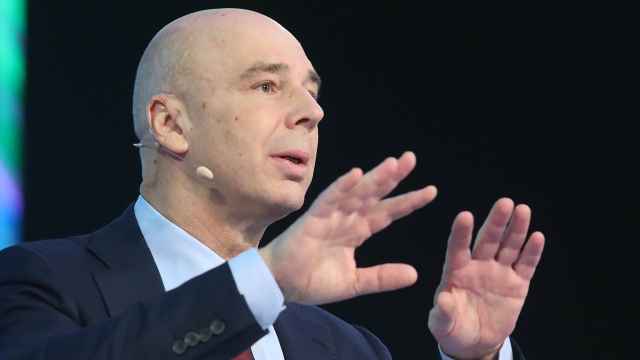President Vladimir Putin has opened a new front against his own citizens. His latest weapon is not artillery or propaganda, but something more subtle and suffocating: control over every dollar, every euro, every door still leading to the outside world.
According to sources cited by Interfax, the new proposal from Russia’s Finance Ministry would hand the president sweeping power to ban or restrict any foreign currency transactions by Russian residents.
It will also grant Putin the authority to impose restrictions on opening and maintaining accounts, as well as make other decisions related to currency regulation.
For many older Russians, it would carry an unmistakable echo of the Soviet past, when those caught trading foreign currency were branded traitors, hauled before show trials and in some cases shot or sent to the gulag.
On paper, it’s about financial stability. In practice, it’s about control that crushes autonomy and rewards obedience.
To be sure, this measure may never take full effect. Like other extreme proposals from Moscow lawmakers, it could be more political theatre than policy. But even as a signal, it says everything: in Putin’s Russia, control is the point.
The echoes of the past are unmistakable. In the Soviet Union, holding or trading foreign currency was a serious offense. Currency crimes could mean years in the Gulag or a bullet from the firing squad.
Now, Putin is reviving that same reflex: isolate, punish and dominate by trapping Russians inside the ruble’s walls.
Under the proposed amendments, the Kremlin could outlaw dollar and euro purchases, cap conversion volumes and even require special permits for Russians to move money abroad.
For millions who keep dollars under the mattress or tucked away abroad as protection against the perpetually volatile ruble, this is not sound fiscal policy; it is economic imprisonment.
While the bill may be aimed at crushing speculators for now, a tightening fiscal and economic squeeze could see its powers broadened, putting all Russians’ financial freedom at risk.
The push to police foreign-currency transactions is just the latest step in Putin’s campaign to isolate Russians economically and politically from the West.
Since invading Ukraine in 2022, the Kremlin has tightened every screw: blocking capital flows, seizing and nationalizing private assets, labeling independent media and NGOs as “foreign agents” and throttling access to popular messaging apps like Telegram and WhatsApp.
In the months after the war began, Russia imposed strict currency controls on citizens and companies to counter Western sanctions. These included limits on foreign currency cash withdrawals, bans on cash purchases of foreign currency by individuals, restrictions on transfers abroad and mandatory conversion of export revenues into rubles.
While some measures have eased, such as allowing individuals to transfer up to one million dollars monthly and removing the export revenue conversion, key restrictions like the $10,000 cash withdrawal limit and controls on currency sales remain in place.
We’ve seen this movie before. In Stalin’s U.S.S.R., private currency dealings were treated as subversion. The state monopolized every dollar, every deutsche mark, every franc.
Ordinary citizens caught trading foreign cash were branded “speculators” and enemies of the people. Some were sent to the Gulag. Others were executed.
In 1961, two 22-year-old men, Yan Rokotov and Vladislav Faibishenko, were shot for illegal foreign currency trading and speculation, following a show trial shown on state television. Their only sin was believing in freedom above fiat, the Kremlin’s paper money.
In the Soviet Union, the state foreign trade monopoly ruled with a mix of paranoia and precision. These were the enforcers who decided who could touch a dollar, who could travel, who could buy or sell abroad and who would vanish into a labor camp for trying.
They treated money like ideology: every ruble a matter of loyalty, every dollar a potential betrayal. To them, foreign currency wasn’t just cash; it was contamination.
Even under Leonid Brezhnev, the state’s paranoia over foreign currency never fully disappeared. Though executions were rare, large-scale currency speculators could still be shot, while ordinary citizens risked prison or the labor camps for holding or trading dollars.
The message was clear: to the Soviet state, foreign currency was not just money but a potential act of subversion.
Such restrictions deepened the U.S.S.R.’s economic isolation, cutting it off from global markets, trade and innovation.
Over time, that isolation fueled stagnation, as black markets thrived, imports dried up and prices soared. Businesses couldn’t plan, households paid more for everyday goods and confidence in the ruble collapsed. What began as an attempt to control citizens became a chokehold on the entire economy.
Today, Putin’s tightening of foreign-exchange controls echoes that same brutal calculus: loyalty first, solvency later.
Isolated by sanctions and steeped in paranoia, the Kremlin is again pulling Russians back into an era where economic control is a tool of political obedience.
Russia’s economy is entering stagnation and may soon slip into recession under the weight of over 25,000 international sanctions and the mounting costs of its war in Ukraine. These measures have crippled key industries, slashed oil revenues, and pushed GDP growth down to just 0.6% in 2025.
High interest rates and shrinking investment are deepening the downturn, intensifying Russia’s isolation as it becomes increasingly dependent on a narrow group of non-Western allies. Without significant policy shifts, this economic decline will accelerate, further severing Russia’s ties with the global economy.
Closing off the foreign-exchange market doesn’t just punish individuals. It strangles the entire economy, limiting growth, investment, and the very freedom needed to survive in a globalized world.
The Kremlin’s message is chillingly clear: your savings are no longer your own, your ability to connect with the world is revoked, and your freedom is confined within the rigid borders of the ruble.
When the state decides what currency you may hold, freedom itself becomes contraband.
The Iron Curtain is rising again, but its walls are no longer made of barbed wire and concrete. Instead, they are forged from currency restrictions and suffocating bureaucratic controls, sealing ordinary Russians inside a cage of economic isolation.
Once again, it is ordinary Russians who find themselves locked inside, bearing the greatest burden.
A Message from The Moscow Times:
Dear readers,
We are facing unprecedented challenges. Russia's Prosecutor General's Office has designated The Moscow Times as an "undesirable" organization, criminalizing our work and putting our staff at risk of prosecution. This follows our earlier unjust labeling as a "foreign agent."
These actions are direct attempts to silence independent journalism in Russia. The authorities claim our work "discredits the decisions of the Russian leadership." We see things differently: we strive to provide accurate, unbiased reporting on Russia.
We, the journalists of The Moscow Times, refuse to be silenced. But to continue our work, we need your help.
Your support, no matter how small, makes a world of difference. If you can, please support us monthly starting from just $2. It's quick to set up, and every contribution makes a significant impact.
By supporting The Moscow Times, you're defending open, independent journalism in the face of repression. Thank you for standing with us.
Remind me later.








